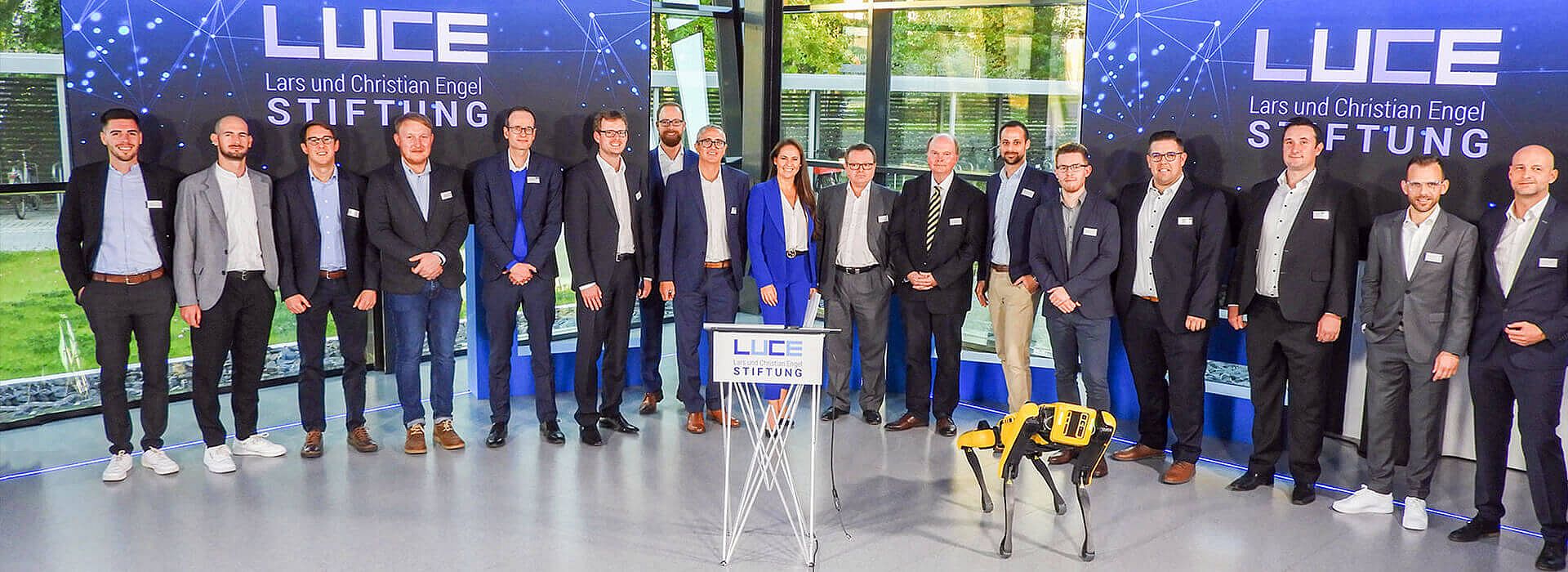As organizer of the successful event, among other things the goal of the LUCE Foundation was to further accelerate digitalization in the region by focusing on modern training and education programs, which also included collaboration with fortiss as a research partner. In his opening remarks, Prof. Dr. Eric Bauer, chairman of the LUCE Foundation, once again clearly underscored the need to create a network of regional partners in the Oberpfalz region to share knowledge in the field of digitalization and in particular to enable topics such as AI.
SMEs have the best prerequisites for the transformation process
At the Future Lab in Weiherhammer, Frank Rieger, spokesperson for the Chaos Computer Club, then followed with an interesting keynote address in which he put aside the focus on the pure technology. He urged the industry to head toward the information society with a critical eye and to understand digitalization as a balancing act that on the one hand opens up further opportunities such as increased sustainability, buts creates a dependency on digital tools on the other. With an eye toward the workforce, he called for companies to take a cooperative approach toward digitalization, above all to design a more attractive workplace. Mr. Rieger believes German SMEs possess core skills that can be effectively integrated into digitalization and advises industry to experiment within a clearly-defined framework. Furthermore, the government must establish policies to create the right conditions for training and education and ensure the development of an open source software pool that is available on a consistent and sustainable basis.
Prof. Dr. Günter Schicker, Managing Director at ISMO GmbH, also appealed for interdisciplinary collaboration between all participants in the transformation process. He once again addressed the creation of a network relevant to digitalization. He sees active participation in and joint development of innovations as the solution in order to be at the cutting edge, noting that “The transformation is going to happen whether we believe it’s a good thing or not. As companies we won’t be asked. The exciting question is how will we deal with it.”
Concentrated expert knowledge on the field of AI
Over the course of the event, the speakers provided extensive information and recommendations related to the theory of AI and outlined successful real-world examples. After fortiss Scientific Director Dr. Harald Reuß briefly introduced the institute and its expertise and service offerings, IIoT project manager Ben Schneider provided a vivid and compact insight into the industrial Internet of Things (IIoT) and its application in digital production. In a further session, Dr. Julian Wörmann, assistant head of the Machine Learning field of competence at fortiss, offered a brief introduction into AI and the fields of application. Together with Philipp Gellert (CEO / Co-Founder CYNEFY GmbH) and Jozo Lagetar (CTO CYNEFY GmbH), he then spoke about the design thinking method and how you can use it to find a targeted path to an AI/digitalization roadmap in the company.
Other speakers included Prof. Dr. Clemens Bulitta, President of Ostbayerische Technical University (OTH) in Amberg-Weiden and Prof. Dr. Wolfgang Weber, head of general policy matters and development at the university, who once again brought the issue of training and education into focus. In addition, Dr. Jan Alpmann and Andreas Keilhacker from the German Entrepreneurship Center introduced the European project Human AI, which fortiss is also involved in. This network of companies and research organizations offers excellent opportunities to maximize AI in a collaborative environment. Mario Betz, Managing Director at ISMO Business & Technology Services, and Thomas Dobat, Project Manager at ISMO GmbH, then concluded the presentations with a session on process digitalization and work flows.
Personal contact takes centre stage again
Following the expert presentations, there was ample opportunity for the participants to get to know one another and establish contacts at the information booths. According to Dr. Wolfgang Köhler, head of fortiss Mittelstand, conversations with participants and organizers indicates that the network event can be viewed as a success. “After such a long break because of the pandemic, it was really nice to be able to meet personally with small-to-medium enterprises again and discuss interesting new use cases.”

